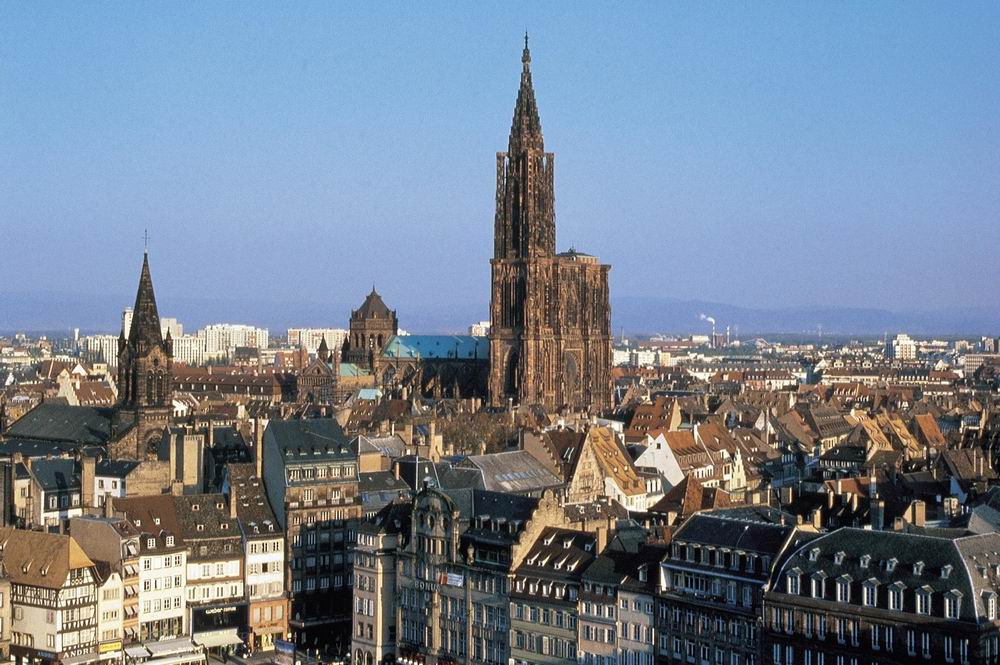The Romans conquered the area around 12 BC, and renamed it to Argentoratum, and it developed into an important military base or castra, stationing the 8th Legion from 90 AD onwards.
After the fall of the Roman Empire, Alsace was occupied by the Alemanni, a Germanic tribe, who eventually were absorbed into the Frankish empire.
Somewhere in the Early Middle Ages, the town must have changed its name to Stratisburgum. After the split of the Frankish Empire in the 9th century, Alsace became part of the Holy Roman Empire, and it stayed within the German empire until the 17th century, even when Strasbourg obtained the status of Free City in 1262.
Strasbourg was the site of one of the worst pogroms of the Middle Ages in 1349, when over a thousand Jews were publicly burned to death, and Jews were discriminated against and prosecuted until well into the 18th century.
Strasbourg was one of the first German cities to embrace the protestant, Lutheran faith in the early 16th century. Because of this, it became a centre of humanistic learning and book printing; the first newspaper in Europe was printed in Strasbourg.
In 1681, the city was annexed by the French king Louis XIV, who profited from the chaos following the 30 Years’ War in Germany. However, unlike in the rest of France, the protestant faith was not outlawed. Strasbourg’s status as a free city ended with the French Revolution.
After the French-German war of 1870, the Germans annexed the city and applied a policy of Germanisation, leading to the exile of those preferring to stay French. After the German defeat in World War I, the city returned to France, and now it was the turn of the French to try to eradicate the traces of German occupation.
During the Second World War, the Nazis considered the Alsatians as fellow-Germans, and many were forced to fight in the German army – a situation that led them to be falsely accused of collaboration after the war.
Today, Strasbourg is the ninth largest city of France with nearly half a million inhabitants in a metropolitan area spanning across the river into the German city of Kehl, on the eastern bank of the Rhine.
The city itself is the seat of the Council of Europe, the European Court of Human Rights, the European Ombudsman, the Eurocorps, the European Audiovisual Observatory and, most famously, the European Parliament, which also holds sessions in Brussels.



